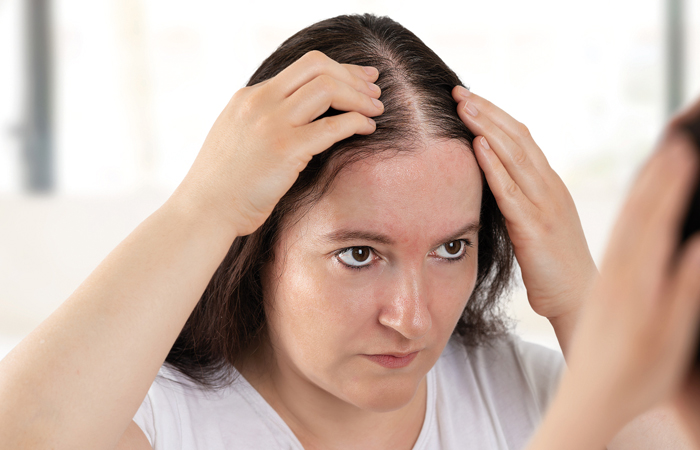How PCOS Affects Skin and Hair—and How to Treat It

Polycystic Ovary Syndrome (PCOS) is a hormonal disorder that extends far beyond reproductive health. While it’s commonly associated with menstrual irregularities and fertility challenges, its impact on skin and hair is often just as distressing. Acne, excessive hair growth, and hair thinning are among the most visible signs of this condition, often affecting self-esteem and confidence.
Understanding how PCOS alters skin and hair health requires a closer look at the hormonal imbalances driving these changes. Elevated androgen levels, insulin resistance, and inflammation work together to create a range of dermatological symptoms that can become chronic if left unmanaged.
For individuals struggling with these concerns, early intervention and the right care plan can make a significant difference. According to many experts, following structured and holistic PCOS treatment guidelines is a powerful step toward restoring hormonal balance and addressing these skin and hair-related symptoms effectively.
Why PCOS Affects Skin and Hair
The root cause of PCOS symptoms lies in hormonal imbalance—primarily elevated levels of androgens, which are typically present in small amounts in females. These male hormones, when present in excess, can overstimulate oil glands, disrupt hair growth cycles, and affect skin cell turnover.
In addition to high androgen levels, insulin resistance is another common issue in PCOS. Elevated insulin levels can trigger the ovaries to produce more androgens, worsening the condition. These internal shifts reflect externally on the skin and scalp.
Common Skin Issues Related to PCOS
1. Persistent Acne
Unlike typical teenage acne, PCOS-related acne is often deeper, more inflamed, and resistant to over-the-counter treatments. It tends to appear on the lower face, jawline, chin, and neck—areas sensitive to hormonal fluctuations. Cysts and nodules may form, leaving behind dark marks or scarring if not treated properly.
2. Oily Skin
Overproduction of sebum, or skin oil, is another result of excess androgens. This leads to greasy skin that’s prone to clogged pores and breakouts. The shine may persist throughout the day despite regular cleansing, and makeup may not stay intact for long.
3. Skin Darkening and Tags
Insulin resistance can cause dark patches of skin, particularly around the neck, underarms, and groin—a condition known as acanthosis nigricans. Additionally, skin tags may appear in areas where the skin folds. These are often early markers of underlying metabolic changes.
Hair Problems Caused by PCOS
1. Hirsutism (Excess Hair Growth)
One of the hallmark symptoms of PCOS is hirsutism—excess hair growth in areas typically associated with male patterns. This may include the face, chest, back, and abdomen. It occurs when androgens overstimulate hair follicles, leading to coarse, dark hair that grows more rapidly than normal.
2. Scalp Hair Thinning
While unwanted hair appears on the body, the opposite occurs on the scalp. Many individuals with PCOS experience thinning hair, especially near the crown and temples. This pattern is similar to male-pattern baldness and is due to the same hormonal factors.
3. Slow Hair Growth and Hair Loss
Apart from thinning, the overall growth cycle of hair can be affected. Strands may grow slower, fall out more frequently, or appear dull and brittle. Stress, poor diet, and inflammation further accelerate hair damage.
Effective Treatment Options
Managing PCOS-related skin and hair symptoms requires a multifaceted approach. Targeting the hormonal root cause while also caring for the skin and scalp can lead to visible improvements over time.
Medical Interventions
Hormonal Therapy:
Birth control pills are commonly prescribed to regulate hormone levels and reduce androgen production. This helps manage acne and hirsutism effectively for many individuals.
Anti-Androgen Medications:
Medications like spironolactone block the effects of androgens on the skin and hair follicles. These are typically prescribed when symptoms are severe and persistent.
Topical Treatments:
Dermatologists may recommend retinoids, salicylic acid, or benzoyl peroxide for acne. Hair serums with minoxidil can help address scalp thinning.
Insulin-Sensitizing Drugs:
Medications such as metformin not only regulate blood sugar levels but may also indirectly reduce androgen production.
Lifestyle and Dietary Changes
Balanced Nutrition:
A nutrient-rich diet low in refined sugars and high in fiber helps manage insulin resistance. Including foods rich in zinc, omega-3 fatty acids, and antioxidants supports both skin clarity and healthy hair growth.
Hydration and Detox:
Staying hydrated flushes out toxins and supports healthy skin. Detox drinks with turmeric, ginger, or lemon can support liver function and hormonal detoxification.
Consistent Exercise:
Physical activity boosts circulation, reduces inflammation, and helps balance insulin levels—all of which improve skin health and prevent hair thinning.
Stress Management:
Stress increases cortisol levels, which can worsen hormonal imbalances. Incorporating mindfulness, yoga, or deep breathing into daily routines helps regulate internal systems.
Natural Remedies and Self-Care
Herbal Support:
Herbs like spearmint, licorice root, and saw palmetto are believed to have anti-androgenic properties. These can be consumed as teas or in supplement form under the guidance of a healthcare professional.
Natural Skin Care Routines:
Using gentle, sulfate-free cleansers and non-comedogenic moisturizers can help maintain skin barrier health. Exfoliation once or twice a week helps clear clogged pores.
Scalp Treatments:
Massaging the scalp with oils like rosemary, castor, or tea tree oil can stimulate blood flow and strengthen hair roots.
Hair Removal Solutions:
For hirsutism, options like laser hair removal, waxing, or threading can help manage unwanted hair. Long-term solutions may require multiple treatments.
Importance of Early Intervention
The earlier PCOS is diagnosed and treated, the easier it is to control its external symptoms. Ignoring the condition often leads to worsening acne, permanent scarring, or severe hair thinning that becomes harder to reverse.
Regular health check-ups, hormone testing, and staying aware of bodily changes can aid in early detection. While it may take time to see visible improvements, consistent care and adherence to a well-rounded routine can result in lasting benefits.
Conclusion
The skin and hair symptoms linked to PCOS are not merely cosmetic concerns—they are clear signals of internal hormonal imbalance. From painful acne to unwanted facial hair and scalp thinning, these issues can deeply affect emotional well-being and self-image.
By following proper care strategies and addressing the root hormonal causes, significant relief is possible. Whether choosing conventional treatments, lifestyle modifications, or natural remedies, the key lies in a comprehensive and sustained approach. Early action and guidance based on trusted PCOS treatment guidelines can make a transformative difference in both appearance and overall health.
Every step toward healing is a step toward renewed confidence and balance. Investing in personal care and medical support is not just about treating symptoms—it's about empowering long-term wellness.
Note: IndiBlogHub features both user-submitted and editorial content. We do not verify third-party contributions. Read our Disclaimer and Privacy Policyfor details.




